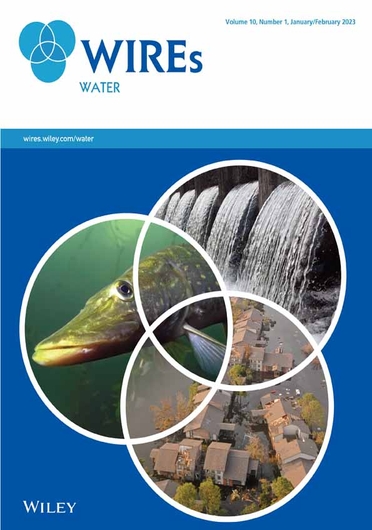Review of the research on hydropolitics in Cambodia
IF 5.8
1区 地球科学
Q1 ENVIRONMENTAL SCIENCES
引用次数: 0
Abstract
Research on hydropolitics in Cambodia emerged in the early 2000s. Since then, scholars in the field have diversified their analytical approaches and broadened the scope of the issues being examined. However, no systematic review of this body of research has been published until now. Correspondingly and quite simply, the objective of this paper is to review the research on hydropolitics in Cambodia. Through the lens of human security, I argue that the research has relied on a human‐centered analytical approach and has, thus, acquired three central characteristics: (1) the human‐centered analytical approach gives the research a stronger connection to the reality on the ground than is the case with research rooted in the conventional security approach, which adheres to the Westphalian practice of statism and a militaristic focus; (2) the research has generated some valuable findings (e.g., dam‐affected villagers can be their own security contributors; not all environmental nongovernmental organizations are anti‐dam); and (3) the research has generally overlooked the Cambodian People's Party government's alternately pro‐dam and anti‐dam stances.柬埔寨水文政治研究述评
柬埔寨的水文政治研究始于21世纪初。从那时起,该领域的学者们多样化了他们的分析方法,拓宽了所研究问题的范围。然而,到目前为止,还没有发表过对这一研究主体的系统综述。相应地,简单地说,本文的目的是回顾柬埔寨水文政治的研究。通过人类安全的视角,我认为该研究依赖于以人为中心的分析方法,因此获得了三个核心特征:(1)以人为中心的分析方法使研究与实地现实有更强的联系,而传统安全方法则坚持威斯特伐利亚国家主义的实践和军国主义的焦点;(2)研究产生了一些有价值的发现(例如,受大坝影响的村民可以成为他们自己的安全贡献者;并非所有的环保非政府组织都反对大坝;(3)研究普遍忽略了柬埔寨人民党政府时而支持大坝,时而反对大坝的立场。
本文章由计算机程序翻译,如有差异,请以英文原文为准。
求助全文
约1分钟内获得全文
求助全文
来源期刊

Wiley Interdisciplinary Reviews: Water
Environmental Science-Ecology
CiteScore
16.60
自引率
3.70%
发文量
56
期刊介绍:
The WIREs series is truly unique, blending the best aspects of encyclopedic reference works and review journals into a dynamic online format. These remarkable resources foster a research culture that transcends disciplinary boundaries, all while upholding the utmost scientific and presentation excellence. However, they go beyond traditional publications and are, in essence, ever-evolving databases of the latest cutting-edge reviews.
 求助内容:
求助内容: 应助结果提醒方式:
应助结果提醒方式:


